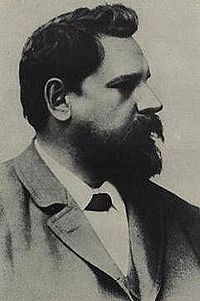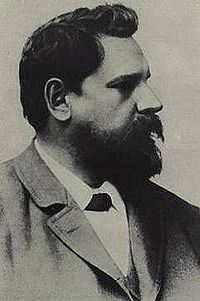Zdenek Fibich
| Born | 21 December 1850
Všebořice, Czech Republic
|
|---|---|
| Died | 15 October 1900 (aged 49)
Prague, Czech Republic
|
| Occupation | Composer |
Zdeněk Fibich (Czech pronunciation: [ˈzdɛɲɛk ˈfɪbɪx], 21 December 1850 in Všebořice – 15 October 1900 in Prague) was a Czech composer of classical music. Among his compositions are chamber works (including two string quartets, a piano trio, piano quartet and a quintet for piano, strings and winds), symphonic poems, three symphonies, at least seven operas (the most famous probably Šárka and The Bride of Messina), melodramas including the substantial trilogy Hippodamia, liturgical music including a mass – a missa brevis; and a large cycle (a total of 376 pieces, from the 1890s) of piano works called Moods, Impressions, and Reminiscences. The piano cycle served as a diary of sorts of his love for a piano pupil, and one of the pieces formed the basis for the short instrumental work Poème, for which Fibich is best remembered today.
See More :

Although Zdenko Fibich had equivalent skill to the more famous Czechs like Smetana and Dvorák, he was not as forceful in his Czech patriotism during a time of Czech protest against the rule of the Habsburgs. He was reared in a household with divided loyalties and never developed the fierce Czech patriotic streak, and therefore did not become as popular with his contemporaries. After spending two unhappy years as choirmaster in Vilnius, where his wife and newly born twins both died, he returned to Prague, and remarried with his first wife’s sister. In 1895 he left her for his former student and lover Anezka Schulzová, who went on to write the libretti for all his later operas, and also served as the inspiration for his Moods, Impressions, and Reminiscences, a gigantic cycle of almost 400 piano works.
All pieces: |
||||
|---|---|---|---|---|
| Capriccio Op. 2 No. 4 | D Minor | 1867 | 4 | |
| Piece Op. 47 No. 2 | C-sharp Minor | 1895 | 4 | |




Leave a Reply
Want to join the discussion?Feel free to contribute!